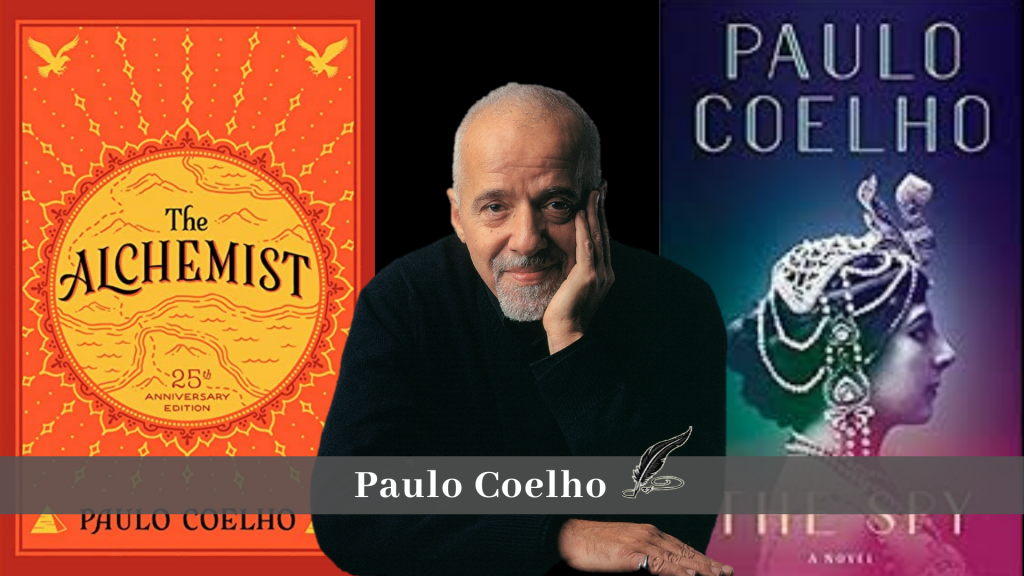
Best Paulo Coelho Books: 15 Must-Reads From Paulo Coelho Book List
It’s hard to choose only a few of the best Paulo Coelho books from his vast collection of books and novels. Each book by Paulo Coelho is better than the previous one.
With a dream to pursue a career in writing, Paulo Coelho, struggled to have a normal childhood. His parents opposed his dream of becoming a writer as it wasn’t a promising career choice especially in Brazilian society.
But no one could have imagined a young child who spent years in a mental asylum would go on to become the most popular, best-selling author of the 21st century. He holds the Guinness World Record for the most translated author ever born and Paulo Coelho books are cherished by readers all over the world.
Paulo Coelho’s journey to Santiago de Compostela, Spain, a site of Catholic pilgrimage, changed the course of his life. It enlightened him with a spiritual and mystical awakening which is visible in his simple and lucid writing style.
On an occasion, Paulo says,
What counts in a good story is the person inside. Keep it simple. I write the book that wants to be written. Behind every first sentence is a thread that takes you to the last.
He has authored many books including his masterpiece, the Alchemist and we have chosen top 15 from the extensive Paulo Coelho book list.
1. Alchemist
And, when you want something, all the universe conspires in helping you to achieve it.
It’s the novel that made Paulo. It’s a powerfully emotional novel with optimistic undertones. The protagonist is a shepherd who is both a simple young boy and a yearning explorer who shows signs of wisdom beyond his year. He follows his heart and sets out on a journey to fulfill his higher purpose.
In a way he’s looking for alchemy, a treasure in Egypt that no one knows about. The book takes the protagonist through multiple adventures as he tries to decipher what’s real and what’s a mirage. As he continues his journey to seek the treasure, he travels within to find the buried treasures within his own self.
Alchemist is a book that changes us as we try to decode its meaning. The power of our dreams, the importance of people around us and the choices we make in our lives, and the value of our desires.
Here’s a detailed book review of The Alchemist by Daniel Karim and an account of how it shaped Daniel’s life path.
2. Eleven Minutes
When I had nothing to lose, I had everything. When I stopped being who I am, I found myself.
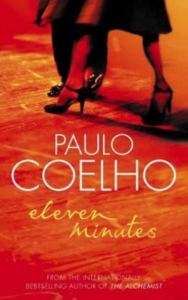
Is it Maria or Sonia? What is about this young Brazilian girl that wants to take control of her destiny but meets one she never envisioned? All she wants is a glamorous life. But one thing leads to another, and before she knows it, the wannabe model becomes a guiltless well-paid prostitute in Geneva.
The book makes you question the truth and the myth of love, sex, and raw desire. One may be tempted to think, it’s a cliched biography of a prostitute… but is it? Beyond the goals and basic desires, the main characters in this story implore deeper meanings to true desire beyond love, sex, and superficial intimacy.
I loved this detailed book review of Eleven Minutes by Aishwarya Shenolikar who was equally touched by this story, especially Maria’s diary.
3. The Pilgrimage
We must never stop dreaming. Dreams provide nourishment for the soul, just as a meal does for the body.
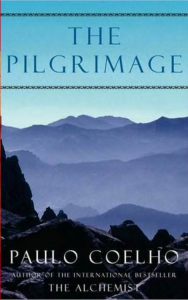
If you like to observe and dissect the philosophical side of life, you must read The Pilgrimage. The protagonist of the novel (or is it Paulo Coelho himself) is on a truthful journey to the “Road to Santiago” to discover the mental and spiritual aspects of human existence.
Every next chapter opens up new mysteries and illusions. The contradiction between the good and evil in the novel represents the ups and downs in a man’s life. If you ever feel insecure, incomplete, and lost, the book is for you because so does the protagonist when the novel begins.
You will love Matthew Sean’s detailed review of The Pilgrimage and the way he explains the storyline and its meaning.
4. Veronika Decides To Die
The two hardest tests on the spiritual road are the patience to wait for the right moment and the courage not to be disappointed with what we encounter.
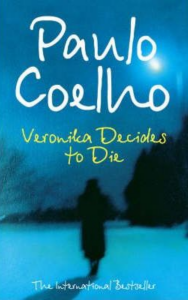
Based on Paulo’s experience of mental asylums, the novel seems to question what’s madness and what’s normal, and rightly so!
Veronika, the protagonist of the novel, seems to have everything; youth and beauty, caring boyfriends, a decent job, and a loving family but still she tries to take her own life ‒ only to fail and face the ultimatum of death.
Paulo, through Veronika, takes readers on a stupendous journey of existence. We celebrate the madness of life but forget to live the small moments of love, care, fear, and curiosity.
Zee had described Veronika’s psychological transition in the book quite precisely in this book review of Veronika Decides to Die.
5. Aleph
It takes a huge effort to free yourself from memory.
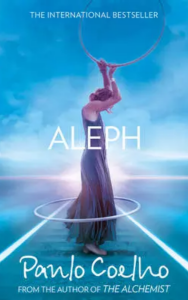
If you view life as a journey, Aleph will appeal to your sensibilities as Paulo embarks on a journey (physical and literal) through Russia to find the ‘spark’ that he seems to have lost.
During the journey, he meets Hilal who tags along adamantly and as the journey progresses, the protagonist, a world famous writer of 59, realizes he has a deep spiritual connection with this young Russian girl. We’re talking about being soul mates for 500 years!
If you’re looking for answers to confusions in your life, this book might help you dive deep inside and find out some answers. The book addresses our emotions related to changes in life that are inevitable, love and forgiveness, and moving on.
I agree with Aleph book review by Namrita that the book may mean different things for different people and none of them may be wrong.
6. Brida
When you find your path, you must not be afraid. You need to have sufficient courage to make mistakes. Disappointment, defeat, and despair are the tools God uses to show us the way.
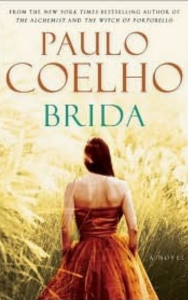
Everybody lives, how is your life different? Brida has many valuable insights into how to live life to its fullest. The novel is all about exploring the different aspects of life, learning from your mistakes to love and trust yourself, acquiring new things, meeting new people. In short, the novel is a modern pilgrim’s journey to self-discovery.
It has many interesting and conflicting characters. Brida has her path set out for her to become a witch but her heart is not at ease. The novel jumps themes through magic and mysticism to soul mates and love.
I agree with Shreya Sharma’s book review of Brida that it’s a light read and an interesting way to think about body, nature, sex in a spiritual way instead of physical one.
7. The Spy
These seeds will always be tulips, even if at the moment you cannot tell them apart from other flowers.
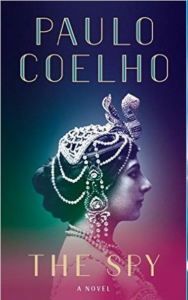
The Spy revolves around the enigmatic character of Mata Hari, a daunting woman from history whose only crime was being an independent and selfless woman. History remembers her as a Dutch exotic dancer and courtesan who was later convicted of being a spy for Germany during World War I.
But who was Mata Hari in reality? Was she a feminist, was she a free spirit, a low life, a spy? Was she the torchbearer of female freedom, the first feminist or a woman who collected the slivers of her existence and refused to show her scars to the world?
In my view, although Paulo has borrowed the facts from history, his version of Mata Hari is only a fictional regeneration. You can read my full review of The Spy here.
8. The Zahir
Love is an untamed force. When we try to control it, it destroys us. When we try to imprison it, it enslaves us. When we try to understand it, it leaves us feeling lost and confused.
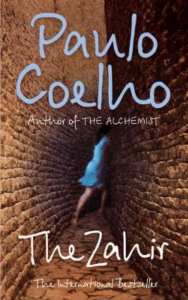
This book has been translated into 44 languages. The most prominent themes of this novel are the obsession with love and the hollowness of the celebrity-lifestyle. The Zahir is a journey of a renowned novelist who also happens to be the narrator of the novel. One day his wife disappears without any clue.
The novel raises many questions throughout the narrative whose answers are unknown to the readers and the narrator himself. The narrator is looking for his wife but in his quest he finds the meanings of marriage, love, and trust. In the end, one realizes that the story was not as much about finding the wife but of self-discovery and the true face of relations in the narrator’s rick lifestyle.
In this book review of the Zahir, Fareda Kaca thinks that the novel urges us to become, and remember who we were meant to be, not who we settled into.
9. Hippie
Those who wish to learn magic ought to begin by looking around them.
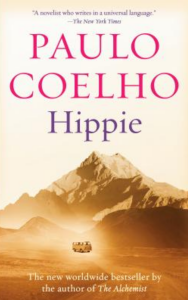
If you want to know more about your favorite author Paulo, you should read the Hippie. It’s Paulo’s autobiographical novel written in third person and shares the theme common among most of his novels, i.e. the discovery of the inner self.
Paulo shares valuable lessons about travelling, love, life, happiness, music through the life of Hippies. Paulo and Karla the character in the novel both look for answers to their questions of life and the novel has answers for them and for us too at the end.
Ivana’s interesting book review of the Hippie reflects my viewpoint that there should have been more tales of their travels than their personal stories.
10. By the River Piedra I Sat Down and Wept
Waiting is painful. Forgetting is painful. But not knowing which to do is the worst kind of suffering.
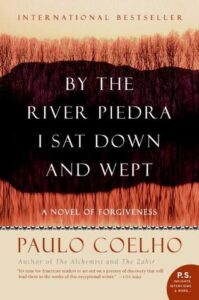
Without a doubt, Coelho’s The Alchemist is a masterpiece. But if you’re looking for another fantastic story revolving around spiritual adventures, then this book should be on your reading list!
The novel revolves around a girl who reunites with her childhood love after 11 years. However, he is now a spiritual leader, while she isn’t the same naive girl anymore. Time has changed the female protagonist into a strong and independent woman. Do long-time lovers’ reunion ignite the same lovable flame or burn their world to ashes?
Coelho once again emphasizes through this book that love can never be an obstacle to one’s dreams. It’s a force that drives the lovers to conquer their dreams and inadvertently find themselves and God. The novel beautifully sets a lyrical theme and creates a mystical air with the help of symbolism and realism.
Isabella’s review of By The River Piedra I Sat Down and Wept is an executive summary of the story and beautifully explains Pilar’s transformation as she overcomes her worries and fears.
11. The Devil and Miss Prym
People want to change everything and, at the same time, want it all to remain the same.
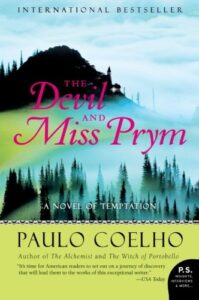
This novel by Coelho is a classic tale of good versus evil where the reader yearns for the good to prevail in the face of evil. The novel excites the readers and leaves them captivated till the end. Coelho proved to be a master of words yet again, writing an ingenious story tackling the age-old dilemma ‒ Is human inherently GOOD or EVIL?
In this old-fashioned fable, a stranger comes to live in a small town with a backpack filled with 11 gold bars. Ms. Prym becomes the news bearer that stirs an ominous air in the quiet little town. The news? Whoever kills one person in the town will receive ten gold bars as a gift. He promises to give one gold bar to Ms. Prym as a bribe for relaying the news.
As expected, Ms. Prym fights a moral dilemma, and the story unfolds in a way she didn’t quite expect. Will the people of this quaint and peaceful town turn into murderers? Will they give in to greed, or will they drive the stranger out of their village? The Devil and Miss Prym is an exciting tale about inherent human vices and virtues.
Megan’s review of The Devil and Miss Prym praises the novel for its good moral lesson, intriguing narrative, and unexpected ending. However, she mentions that it’s a slow read, and the wordy ending takes the excitement out of the novel.
12. The Witch of Portobello
You are what you believe yourself to be.
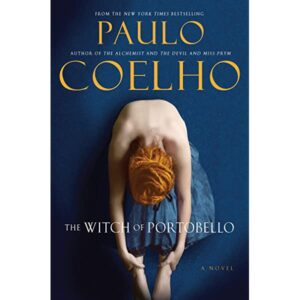
Can we find the courage and nerve to stay true to ourselves? What if we are unsure of who we are? Will we still be brave, or will it leave us alone and insecure?
Revolving around such profound questions about existence, this novel by Coelho leaves you questioning yourself and your beliefs. It celebrates the theme of self-discovery, familial relationships, and the feeling of fulfillment.
The main protagonist of the story isn’t introduced to us directly. Instead, we get to know her gradually from the perspectives of her acquaintances after she has been brutally murdered. The tale advances through interviews of different people to find the murderer.
According to the review of The Witch of Portobello by Loni Stark, the book explores the spiritual meaning of life, happiness associated with it, and the need for self-fulfillment.
13. The Winner Stands Alone
If you love someone, you must be prepared to set them free.
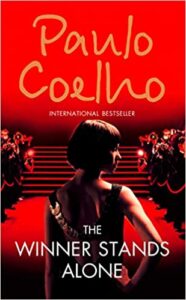
This book’s holding a mirror up to the face of culture’s obsession with fame, glamor, and celebrities. Coelho, in this novel, reveals the ugly truth behind the so-called classicism and modernism.
The five main protagonists are loosely connected, and the story unfolds individually for each. During the Cannes Film Festival, each character’s life turns upside down – for the worst. Within the short span of 28 hours, the readers witness bloodshed, cynicism, and evilness at their peak.
The novel explores the themes of obsession, so-called classism, ambition, and many other vices. The tale explores the inhumane side of humans, mad hatred, and fascination for something unattainable.
This review of The Winner Stands Alone highlights the profound insights into the life experiences of successful people and the way the novel brings to light the cost of this success which most people don’t think of enough.
14. Adultery
Beware when making a woman cry. God is counting her tears.
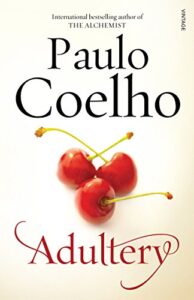
Can your desire to explore every angle of living a full life cost you your life, relations, and reputation?
Tired of boring and monotonous married life, the main protagonist desires to explore something new in her life. When an old flame rekindles, she decides to pursue an illicit relationship with her former boyfriend. Following the lead of passion, desire, and an innate feeling of excitement, will she let these provoked emotions push herself towards disaster?
The novel follows the protagonist in suspense as to how far she will go to satisfy her desires. The story unfolds the sin and betrayal that raises the bar for the crime and punishment.
Catherine C.J. Baxley, in her detailed review of the Adultery, discusses all the sides of the story. It’s agreeable that the hunger for wanting more in life and never settling with what one has leads to disastrous results.
15. The Archer
The best allies are those who do not think like everyone else.
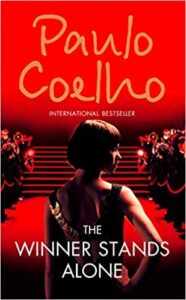
Carefully merging the patience, innovation, and flexibility of an archer in a story, Coelho’s The Archer, like many of his other creations, is in the pursuit of the meaning of life.
In this novel, Paulo Coelho explores the relationship of an archer with his bow and arrow, target, and enthusiasm. However, the words are only symbols here. There’s much to read between the lines. In the context of archery, the writer discusses the essence of growth and challenges in life.
The story narrates a challenge between a stranger and the protagonist in an archery competition. After the defeat, the stranger leaves the place, leaving people surprised about the protagonist’s immense power, which they did not know about earlier. The reader does get to know the reasons why he never lets anyone know about his archery skills.
According to Phoebe’s review of The Archer, it could very well have been a self-help book because of the symbolic use of archery lessons to convey life lessons.
We welcome you on a journey around the world as we explore works of 80 cherished authors around the world. We list their famous books, give you an overview, and connect you to the best book reviews by readers like you and me so that together we can learn stories from around the world.
Find more author reviews here